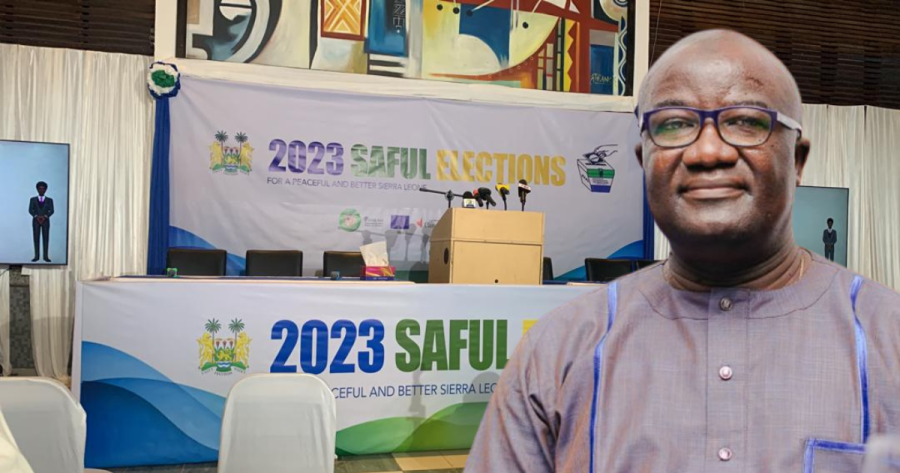In Sierra Leone, the integrity and transparency of elections are of paramount importance, and one of the key elements ensuring this transparency is the provision of disaggregated data.
From polling stations to the final national results, this data serves as the backbone of the electoral process, allowing every stage to be verified, ensuring the accuracy of the final outcome.
Contrary to some misconceptions, disaggregated data has always been made available to party agents and political parties, guaranteeing trust in the electoral system.
The Flow of Disaggregated Data
The process begins at the polling stations, where the votes are counted, and disaggregated data is collected. This data, broken down by individual polling stations, is then collated to produce the polling center results. Once these results are compiled, they form the ward/constituency level data, which is sent to the district result collation centers. At this stage, district results are calculated and transmitted to the regional level, where regional results are generated.
Finally, the regional results are aggregated to produce the national election results. This multi-stage process ensures that each level of data is carefully compiled and checked, moving from the most local level to the national level in a structured manner. At each stage, the data is verified by party agents, international observers, and election officials.
The Role of Verification
Verification is a critical part of Sierra Leone’s electoral process. At each level, from the polling station to the national results, party agents and international observers are present to verify the data. Party agents are given access to disaggregated data at the polling center, constituency, and district levels, allowing them to ensure that the numbers reported match the figures recorded at the lower levels.
In addition, a certified signed certificate is issued to each political party agent present at the collation/tallying centers. This ensures that all parties have a record of the data at every stage of the process, further reinforcing transparency and trust in the system.
What Happens if the Process Is Not Followed as claimed by the opposition – APC in the 2023 elections?
The systematic collection, verification, and transmission of disaggregated data are fundamental to the integrity of the electoral process. If at any point this process is not followed, there will be no disaggregated data, and party agents and the public have the right to demand its release. The failure to adhere to this process would undermine the credibility of the election results, and it is the responsibility of election authorities to ensure that disaggregated data is provided at every stage.
Dispelling Misconceptions
There have been claims that disaggregated data has never been published since Sierra Leone gained its democracy. This is simply untrue. Disaggregated data has always been available to party agents and political parties, ensuring that they are part of the process and that the results are accurate and transparent. The provision of disaggregated data is a longstanding practice, integral to ensuring the fairness of elections in Sierra Leone.
Conclusion
The availability and verification of disaggregated data at every stage of Sierra Leone’s electoral process ensure that the will of the people is accurately represented. From polling stations to the national results, this data guarantees transparency, allowing all parties to verify the accuracy of the results. Any claims to the contrary should be carefully examined, as the publication of disaggregated data has always been a key component of Sierra Leone’s electoral process.












Even if it’s made available to the opposition, they will still contest the outcome
2028, we will make it avialable to Dr . Samura M.W Kamara ….
Why is this data issue won to become something out of nothing ecsl what is going on why can’t you just answer this simple question for this weaver birds to keep quite